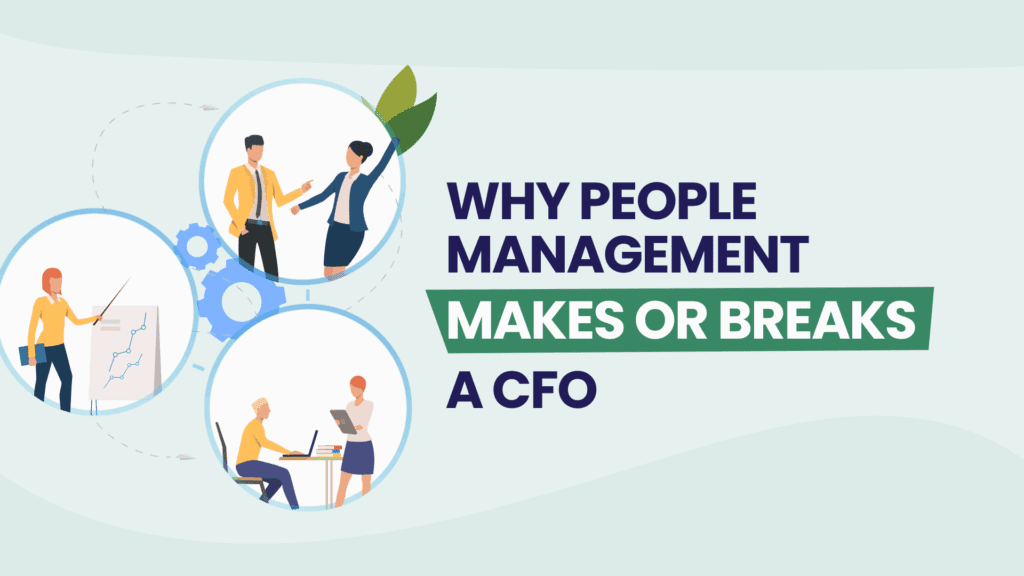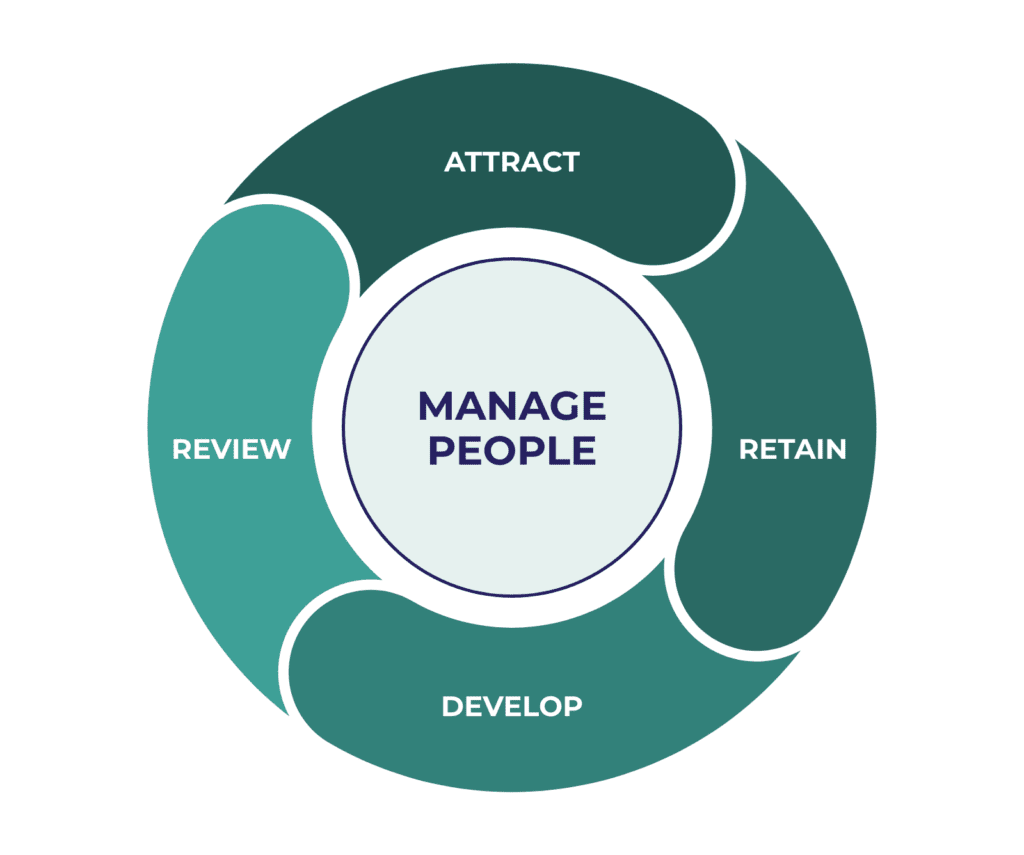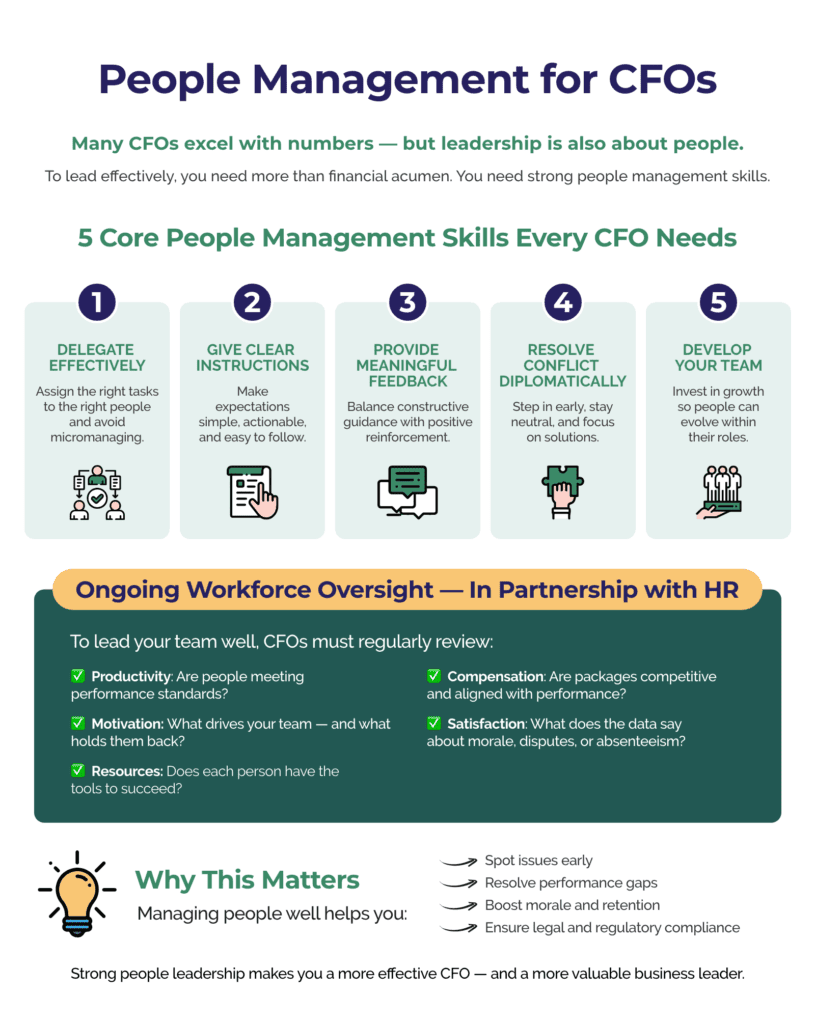Why People Management Makes or Breaks A CFO

Finance Leadership Starts with People
To lead effectively, CFOs must be great people managers — not just financial experts.
Your ability to align, motivate, and communicate with your team directly impacts the success of your finance function and the wider business.
When people are clear on strategic goals, confident in their roles, and supported in their strengths, performance improves — and execution speeds up.
But this doesn’t happen by chance. It requires intentional leadership, strong communication, and a focus on creating a high-performing, collaborative environment.
Here are four essential components of people management every CFO needs to master.

Your direct reports are some of the most important people in your working life.
You are their immediate role model. The way you lead shapes their motivation, performance, and growth.
When managed well, your team:
- Delivers time-consuming tasks
- Helps you hit your goals
- Elevates your leadership reputation
When managed poorly, they can drain your time and energy — missing deadlines, producing low-quality work, and holding back progress.
Small things make a big difference.
A simple “thank you” or a quick recognition of good work builds trust and motivation. People want to feel valued — and when they do, they perform better.
Without strong people management, you’ll struggle to:
- Lead your finance team effectively
- Support the departments you oversee
- Set the pace for the wider business
- Develop future leaders
- Keep everyone aligned and informed
People leadership isn’t optional. It’s essential to your success as a CFO.
Mastering People Management as a CFO
Many CFOs are naturals when it comes to numbers — but leading people requires a different skill set.
To build a high-performing team and lead with impact, CFOs must develop strong people management capabilities. These five are essential:
- Delegate with purpose – Assign the right work to the right people and create accountability.
- Communicate clearly – Give instructions that are simple, direct, and easy to act on.
- Give meaningful feedback – Balance constructive input with positive reinforcement.
- Manage conflict effectively – Stay neutral, listen actively, and lead resolution.
- Develop your team – Invest in growth and help people evolve within their roles.
These skills will help you lead with confidence, support your team’s success, and handle the people-side of leadership more effectively.
But it doesn’t stop there.
CFOs must also work closely with HR and department leaders to review workforce performance and wellbeing. This includes:
- Reviewing productivity, motivation, and performance
- Ensuring everyone has the resources to meet their goals
- Setting competitive, performance-based remuneration
- Monitoring payroll accuracy and timely payments
- Assessing satisfaction via surveys, feedback, and absenteeism
People leadership isn’t a soft skill — it’s a strategic one.
When you lead your team well, performance improves, culture strengthens, and risks are easier to spot and manage.
This is what sets great CFOs apart: the ability to align people, drive execution, and lead with confidence across the business.
🚀 Ready to build a high-performing team and lead at board level? Join the Future CFO Program preview event and gain the skills to turn strategy into action.








Responses